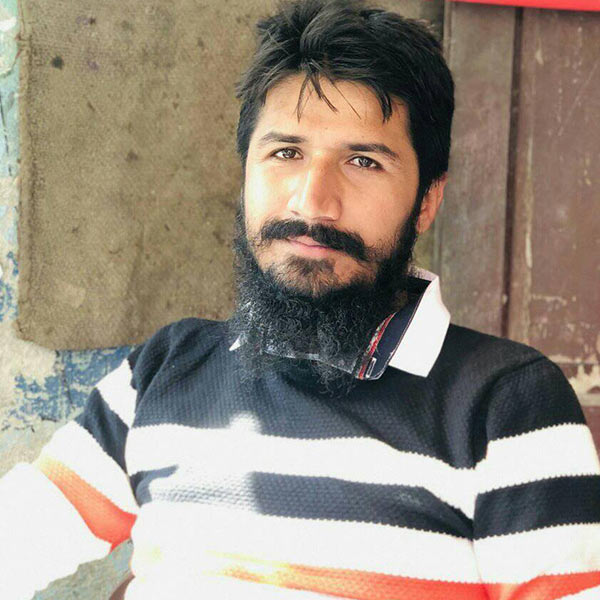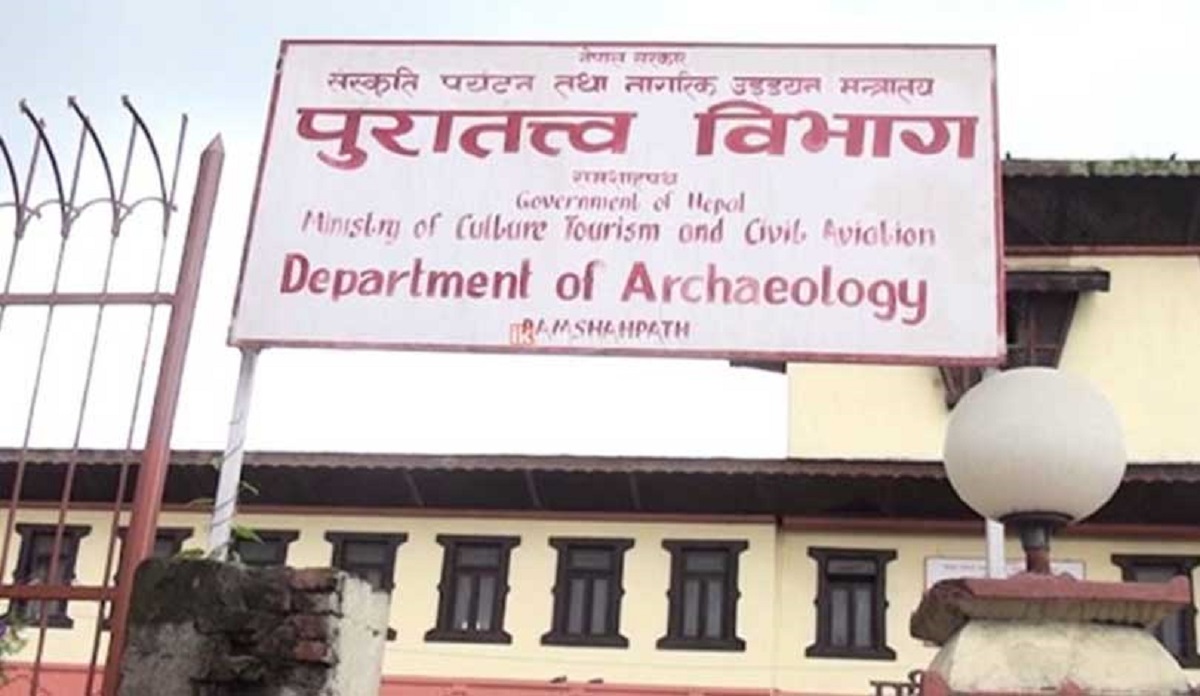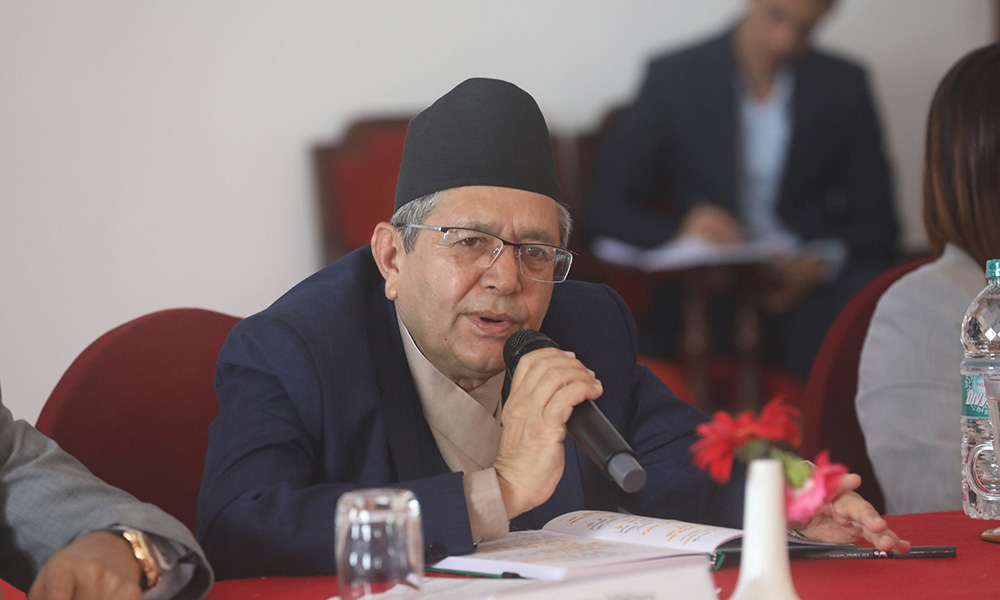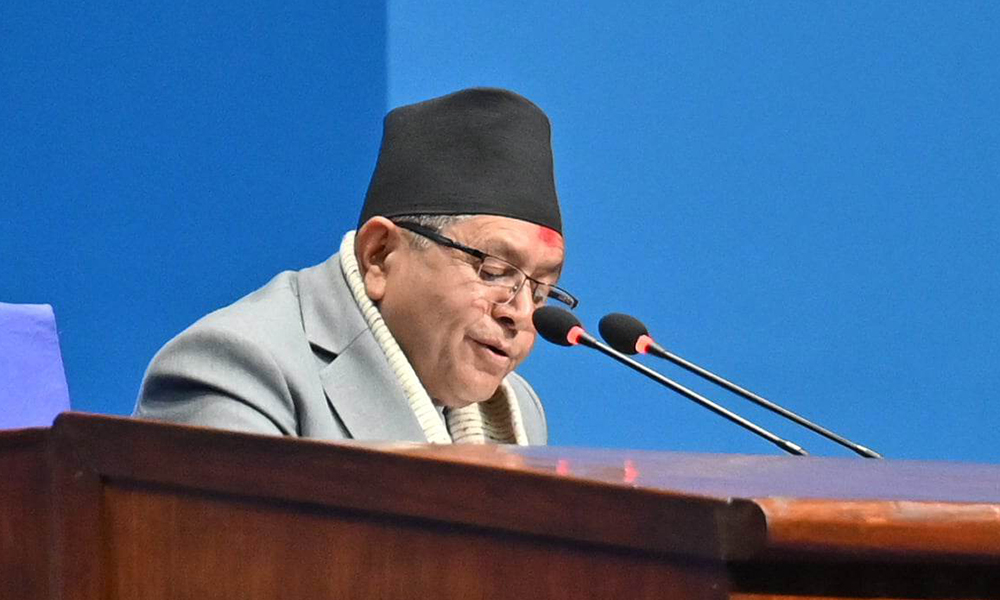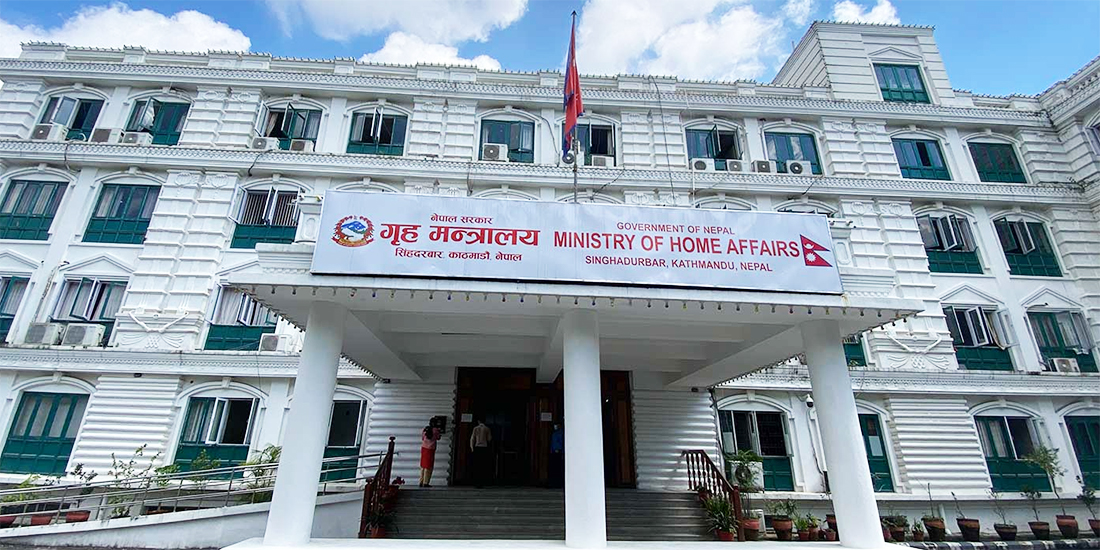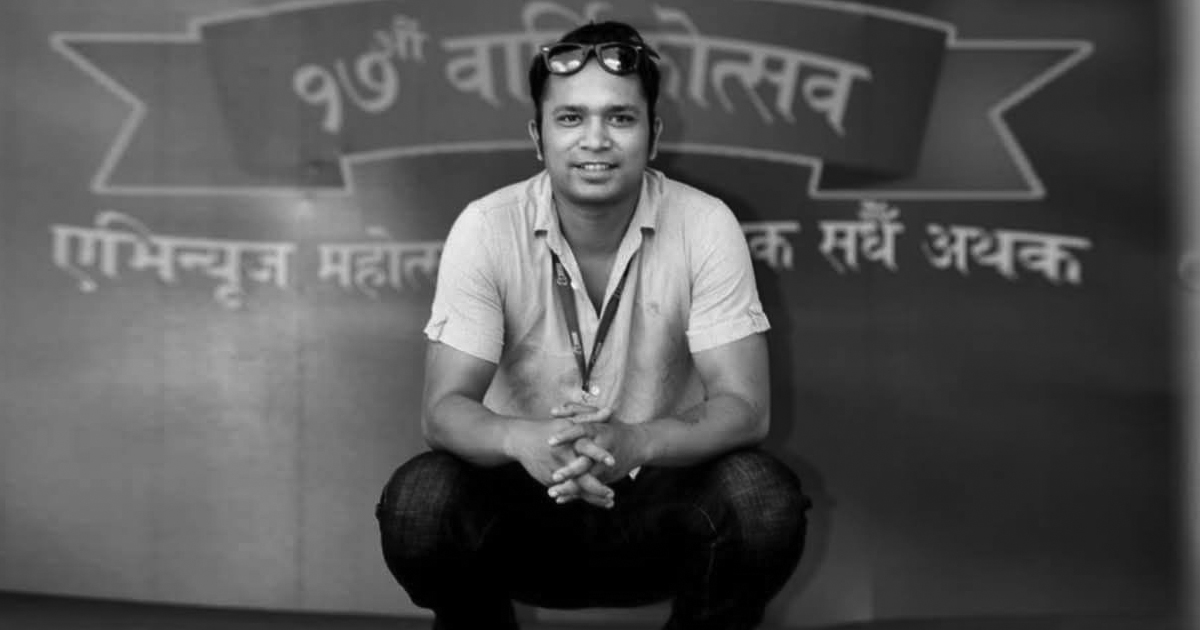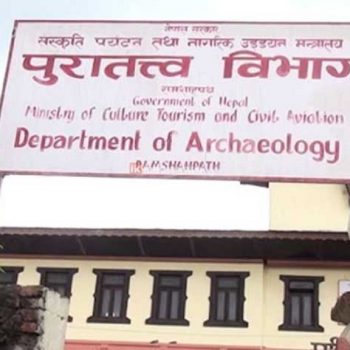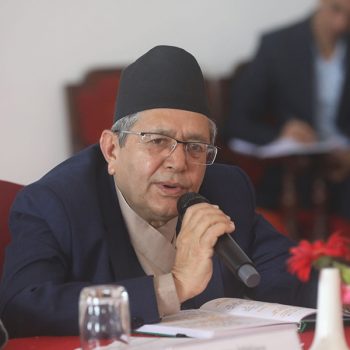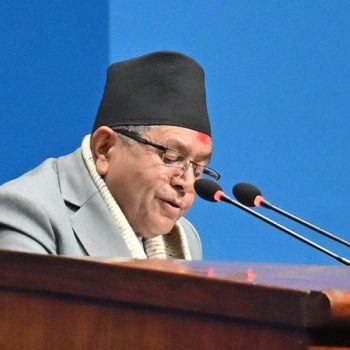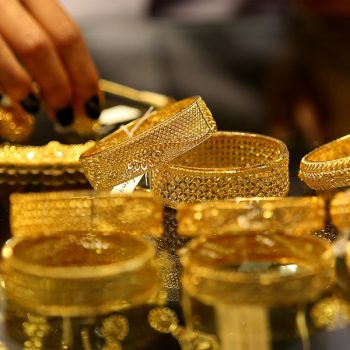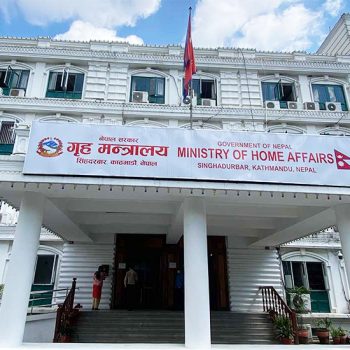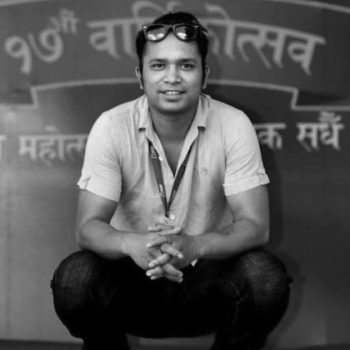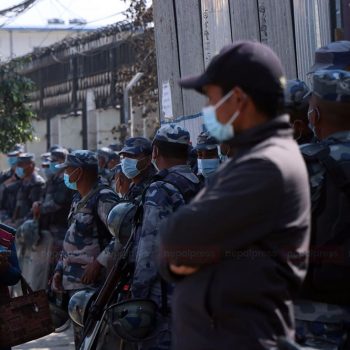‘Nepal, like Ireland, is a country of poets and poets only’

KATHMANDU: Nepal’s renowned literary figure, Yuyutsu RD Sharma, is known for his candidness. He not only extols the strengths of Nepali poetry but also critically examines its weaknesses. In a literary discourse with Sarad Pradhan of Kathmandu Post, published on September 25, 1996, Sharma candidly addressed the shortcomings of Nepali poets and poetry.
“Nepali poets don’t read others’ poems. They have limited exposure. They should read more and more to bring out new ideas,” Sharma had said. He pinpointed the strength of Nepali poetry by stating, “Poems by Gopal Prashad Rimal, Laxmi Prashad Devkota, Bhupi Sherchan are of international height. After Bhupi and Mohan Koirala, there is a crisis of good poetry in Nepali.”
In the same interview, he had stressed the need for more translations for greater global exposure. He opined, “In fact, Nepali poetry lacks international exposure.”
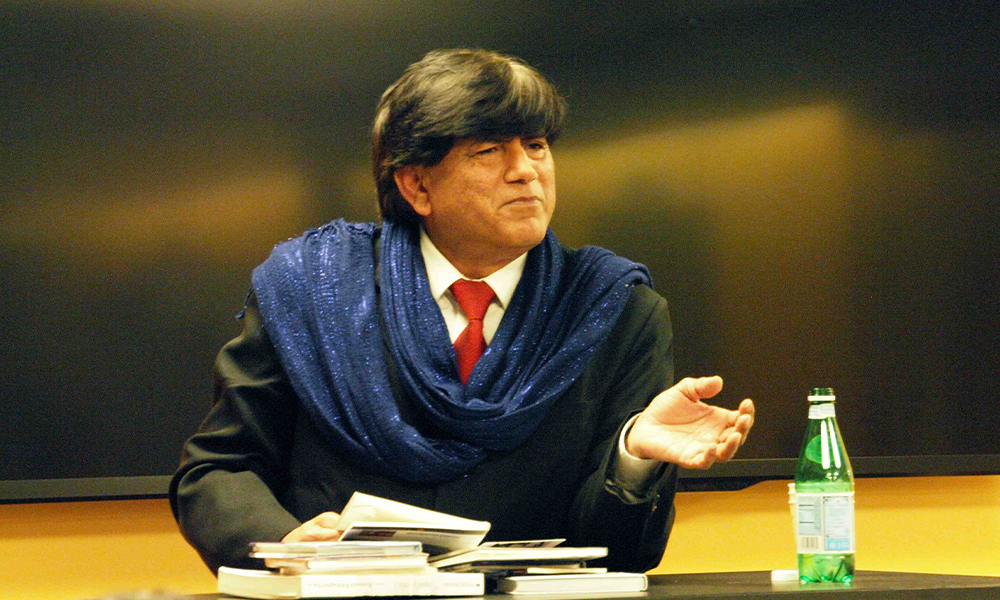
Twenty-eight years later, Sharma, once an advocate for Gopal Prashad Rimal’s poetic prowess and a critic of Nepal’s limited international exposure, now serves as the curator of the inaugural Himalayan Literature Festival. Scheduled for May 27 and 28 in Kathmandu, this pioneering event will feature numerous literary and artistic figures from around five continents, converging for the New York Writers Workshop held from May 22 to June 3. Notably, the festival pays homage to poet Gopal Prashad Rimal, a towering figure in Nepali prose poetry.
In a recent interview with Nepal Press’s Birat Anupam, Sharma elaborated on these developments:
Excerpts:
You have worn many hats like a professor, poet, publisher, editor, writer, translator, trekker, entrepreneur, and the likes. Lately, you have been associated with the inaugural edition of Himalayan Literature Festival 2024 as the coordinator. What brought you here?
For over two decades, I have moved across continents as a freelance poet and writer and earned friendships “thick as tree trunks” (Walt Whitman). Looking back at my life, I marvel at my madness of “putting my house on fire” and walking on Kabir’s formidable path of becoming a Himalayan poet to win the hearts of my readers around the world. Sometimes I wonder what would have happened if I had continued teaching at Tri-Chandra College and ended up as a hi-profile academic and a snooty literature teacher. Hosting a festival like the Himalayan Literature Festival makes me see my worth in my travels around the world to celebrate the grand glory of high glaciers.
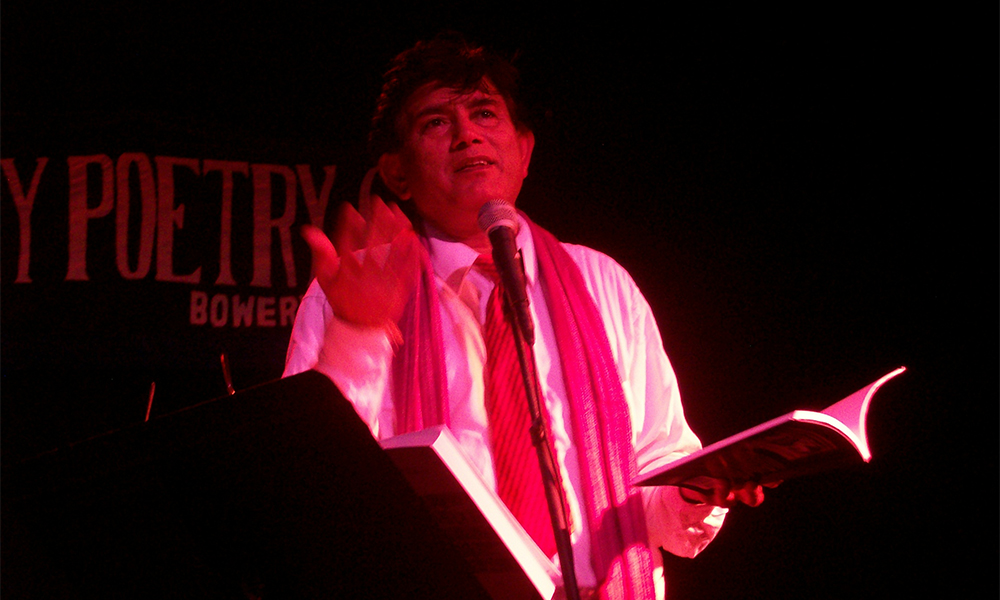
There are some noted Calendar literature festivals in Nepal, namely Nepal Literature Festival of Pokhara, Kunda Karnalika of Surkhet, Janakpur Literature Festival of Janakpur, Ilam Literature Festival of Ilam, among others. What makes Himalayan Literature Festival unique among all of this crowd of literature festivals in Nepal?
It’s not just a festival; it’s a workshop involving intense focus on creative writing and a journey within to discover our elements that shape our destinies as creative writers. It’s not a ceremony, nor a formal applause to please an already contented audience. It’s more of a meditative withdrawal to discover what lies within the perennial fountain of our creative resources. Nor is it a façade to exhibit the commercial strength of power-hungry publishers or politicians. It’s a celestial celebration of our hidden creative energies and a salute to much-ignored and marginalized poets like Gopal Prasad Rimal.
You have partnered with New York Writers Workshop, which is based in New York City and founded in 2000. What brought you together to host this pioneering literary event in Kathmandu?
During my travels, I have earned numerous hearts, and NYWW showcases a spectrum of such enlightened hearts. This workshop and festival will be the first of its kind, covering 12 days with the most exciting panels, readings, and interactions. I plan to present a rich selection of the finest writers out of the treasure trove of my literary friendships forged across continents. Scores of best-known poets and writers from five continents seem an exotic treat for my Nepalese audiences. I can’t believe it’s actually happening in a couple of days.
Who are the noted names to look after in the festival?
Dr. Tony Barnstone, Professor Whittier College, California, Tim Tomlinson, President of NYU, Dr. Ravi Shankar of Tufts University, Jami Proctor Xu, Poet, Essayist, Translator, Julie Krishnan-Williams, International Photographer, and Teacher will be part of the faculty to teach workshops. Also present will be the Polish poets Son Van and Dariusz Lebioda; Panamanian poet Gorka Lasa; South African poet and performer JahRose Jafta; US poets Ruth Danon, Peter Allenspach, and his wife Da Mao; English poet Maria Claire Heath; Greek poet, writer, and educator Vasilis Manousakis; famed Hindi novelist, Pankaj Bista Hon; legendary Indian poet and scholar K Satchidanandan; Hong Kong writer and performer Neville Sarony; Brian Hou, photographer, and Jane Houng, musician, writer, philanthropist, also from Hong Kong; writer and university professor from NYU Abu Dhabi, Piia Mustamaki; Australian writer Lizzie Packer; as well as aspiring writers Kathleen Butler, Kathryn Kempf, Ann Gordon, Nancy Parish, and Marianne Sciberras. In addition, over three dozen Nepalese authors including Dwarika Shrestha, Narayan Wagle, Shailendra Sakar, Karna Sakya, Raj Kumar Bania, Narayan Dhakal, Shyam Rimal, Amar Aakash, Bhuwan Thapalyia, Vijay Gurung, Rajni Mila, and others will join us.
Is the Himalayan Literature Festival a one-off literature festival, or will you give it continuity in the years ahead?
Yes, we are very much looking forward to its continuity as the response to it has been overwhelming. We have sold out our 30 workshop seats, and the vast majority of poets and writers worldwide have shown interest in joining us next year as well.
The Himalayan Literature Festival comes together with New York Writers Workshop, which is hosting a series of events like reading, workshops, panel discussions, traveling to Kathmandu, Pokhara, and Chitwan, as well as some events in temple premises of Kathmandu. Participants joining New York Writers Workshop for this two-week-long event are paying more than $1800. This shows that it is an exemplary event of literary tourism in Nepal. How can Nepal bring in more literary tourism events like this in the days ahead?
As I always say, Nepal, like Ireland, is a country of poets and poets only. To know the soul of Nepal or to get close to Nepalese inner life, one has to understand what’s happening in Nepalese poetry. It would serve the purpose of tourism if we declared Nepal as a nation of great poets and made it a prime item to promote Nepalese tourism. Also, Nepal has this great goodwill as a great generous nation all over the world. Our leaders have not been able to utilize this goodwill worldwide. Poetry can foster this sense of compassion and the immensity of soul to celebrate this great nation’s true essence.
Anything you would like to add at the end?
Having worked in the Nepalese literary circles for the last four decades, I take this event as a summary of my struggles in the nation. To live with the currents and cross-currents of Nepalese literary life, writing in Nepali, translating from Nepali into English, translating from English into Nepali, editing journals, Pratik, and Nirala series, teaching in various campuses, all the contacts I earned will come into force in HLF festival and NYWW. So, I am very excited about doing in my own world what I have been doing during my travels across the world, to sing songs of the mighty Himalayas.


